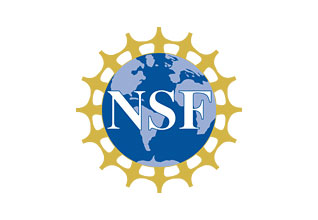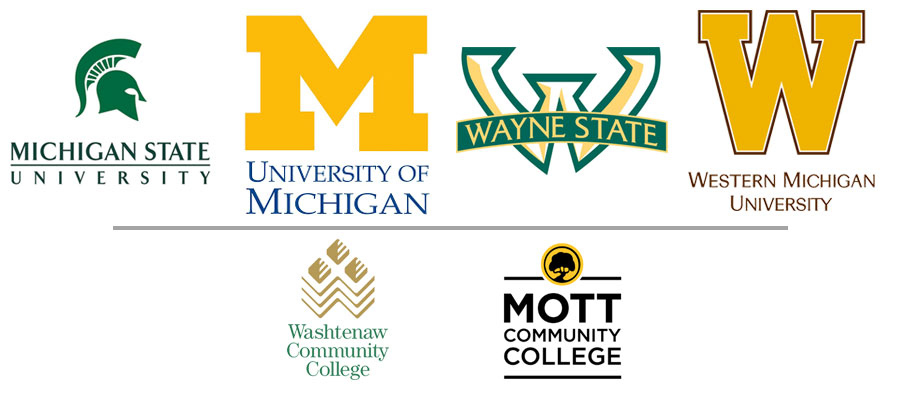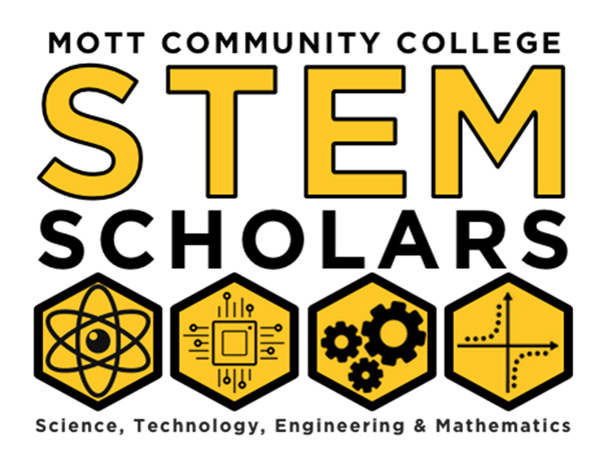
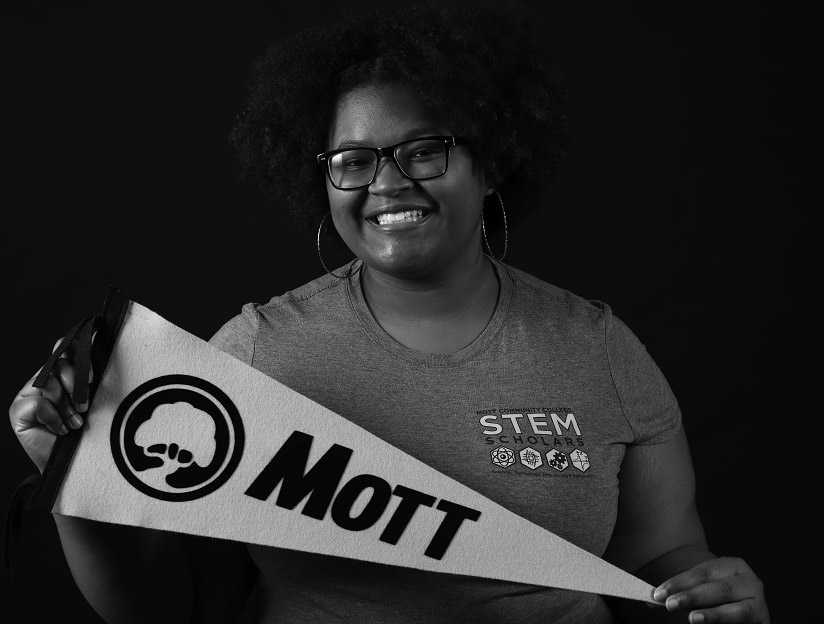
The STEM Scholars program started in December 2016, made possible through two National Science Foundation (NSF) grants, the S-STEM and the MI-LSAMP. MCC is part of an alliance of Michigan universities and community colleges using those NSF grants to help increase participation and graduation rates among underrepresented minorities in science, technology, engineering and math.
Students accepted into the STEM Scholars at MCC will benefit from inclusion in a strong academic community and a well-regarded national program with opportunities to learn from faculty, staff, graduate students, and other professionals in STEM, participate in undergraduate research and internships, and benefit from extensive academic support including specialized leadership and civic learning experiences, advising, peer and professional tutoring, conference travel, university transfer preparation, and participation in the NxtGEN Summer Bridge Program.
STEM Scholars demonstrating financial need are awarded the S-STEM Scholarship covering their total cost of attendance at MCC on an ongoing basis for up to 2 consecutive years.
The faculty at MCC developed and teach a Research Methods course (STEM-199) which uniquely offers undergraduate students inquiry-based learning as they prepare for future professional opportunities which includes presenting their research at national conferences. Currently this course is only available for registration to the STEM Scholars.
Students from underrepresented minority populations in STEM are strongly encouraged to apply: (African American, Alaskan Native, American Indian/Native American, Hispanic, Native Hawaiian, and Native Pacific Islander).
Any student interested in a STEM career and/or pursuing a STEM degree is eligible to participate. High school seniors, dual-enrolled students, and early college students as well as current Mott Community College students are all encouraged to apply.
Students from underrepresented populations in STEM are strongly encouraged to apply: Alaska Native, American Indian or Native American, Black or African American, Hispanic or Latino American, Native Hawaiian or other Pacific Islander, as well as students with disabilities or financially disadvantaged backgrounds.
You must be:
In addition, to be eligible for S-STEM scholarship students must show financial need.
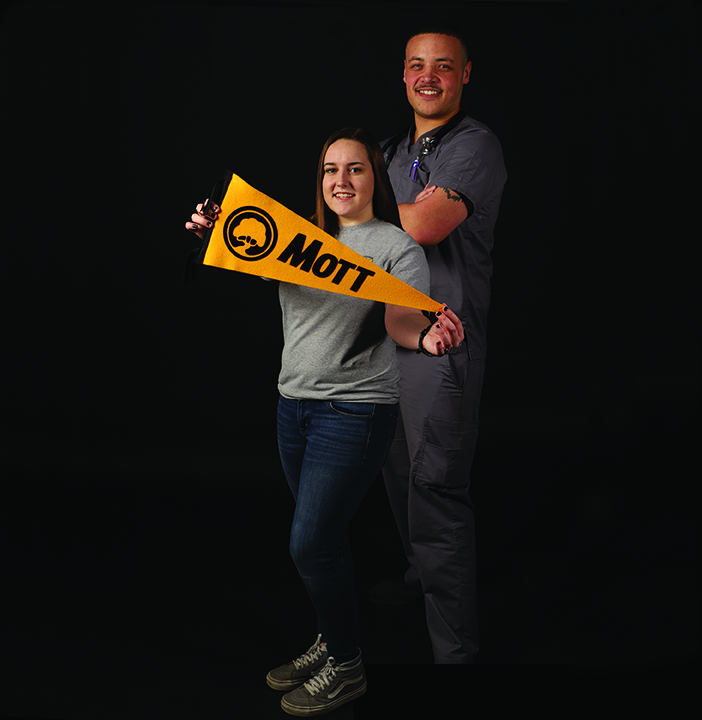
if you are not already a MCC student
This Google Form requires a student's basic contact information, an academic interests survey, 3 short essay responses, recent transcripts, and two letters of recommendation from a mentor, supervisor, coach, counselor/advisor, instructor, volunteer coordinator, etc.
The 3 short essays ask you to share your personal and academic experience with STEM, approximately 250 words for each response.
All applicants will receive an automatic email reply acknowledging receipt of application. If you do not receive a confirmation email, please contact the Program Coordinator, Jessica Bixel, at [email protected] or (810) 762-5111.
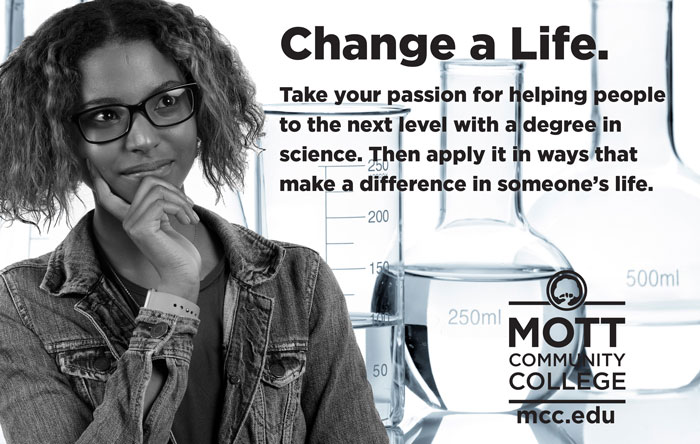
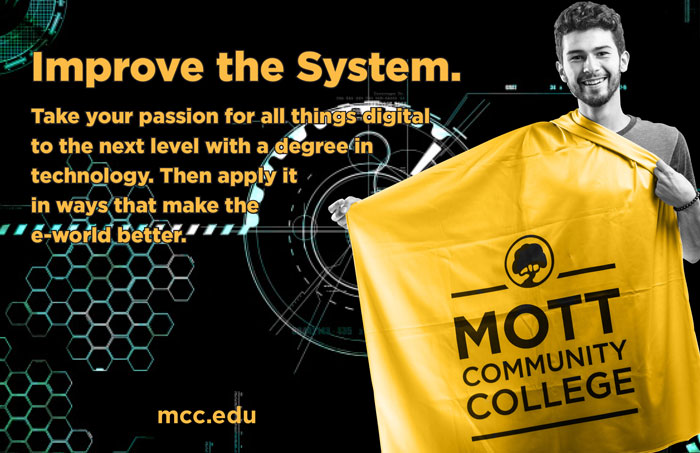
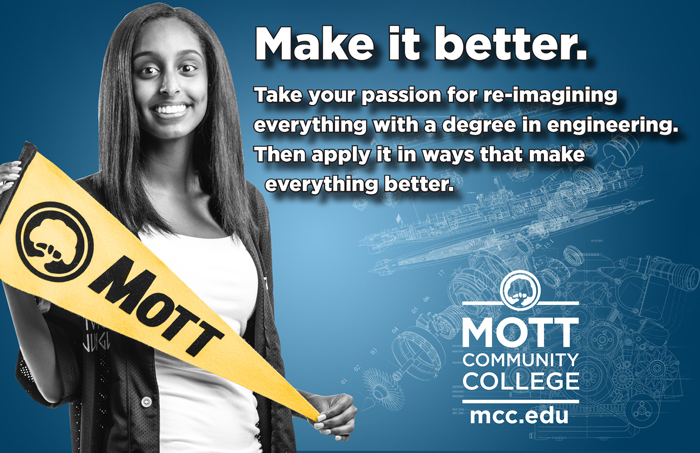

Once you become a MCC STEM Scholar, you will a part of a cohort group of students and together you will:
While a MCC Counselor will help you plan and enroll in courses, you are expected to:
If you are working, or looking for work, please consider the amount of time you will need to invest in this program to be successful when you look for employment options.
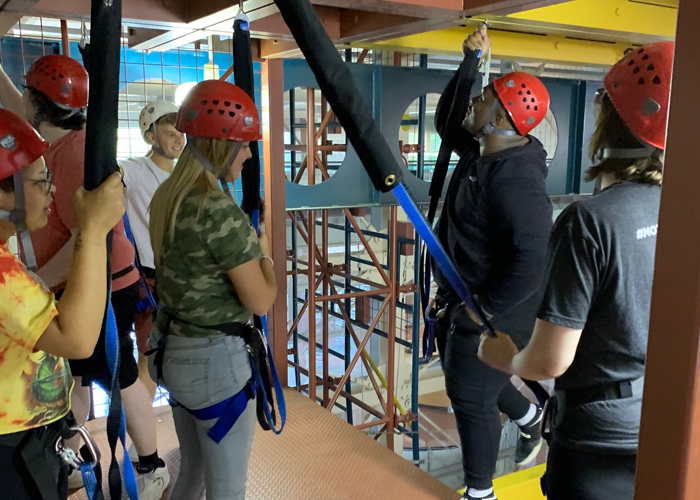
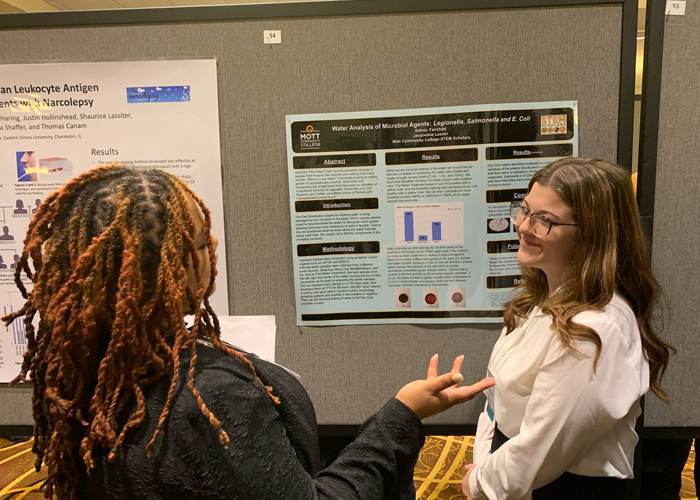
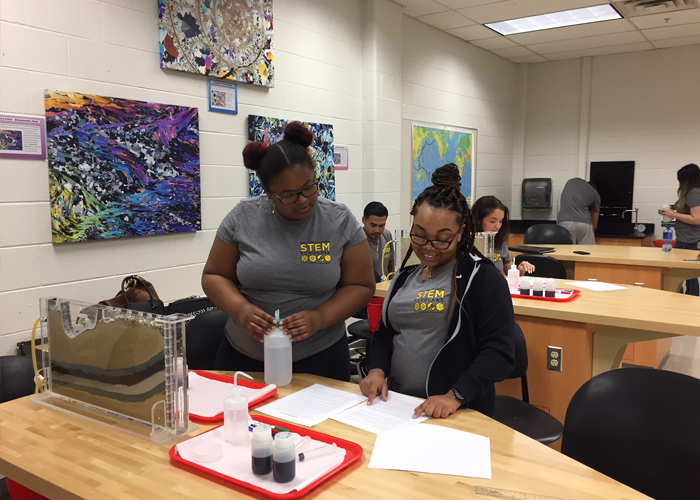
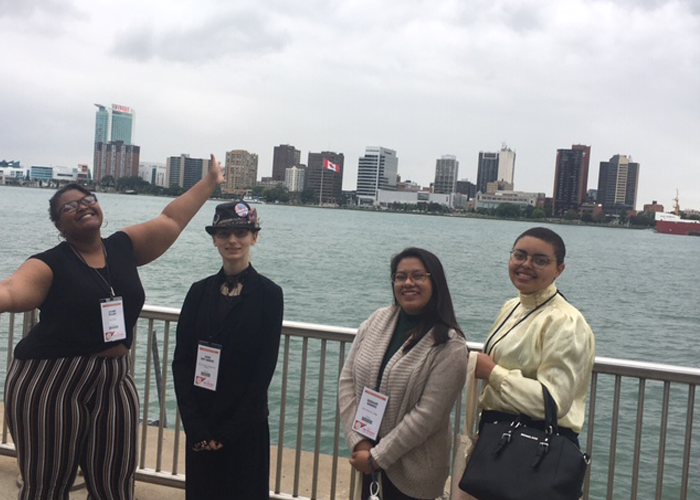
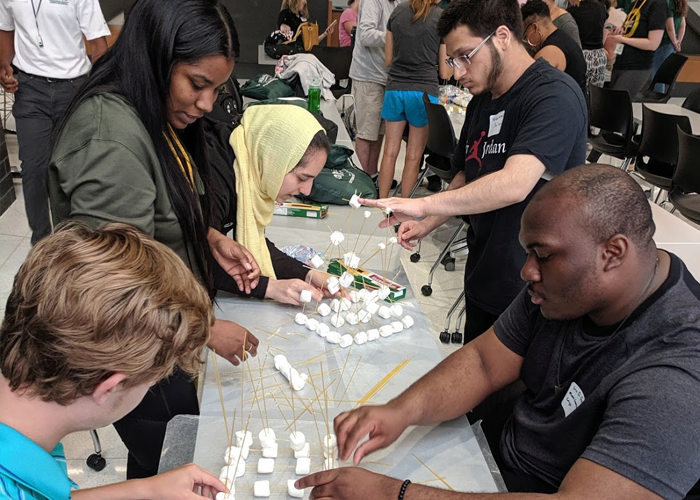
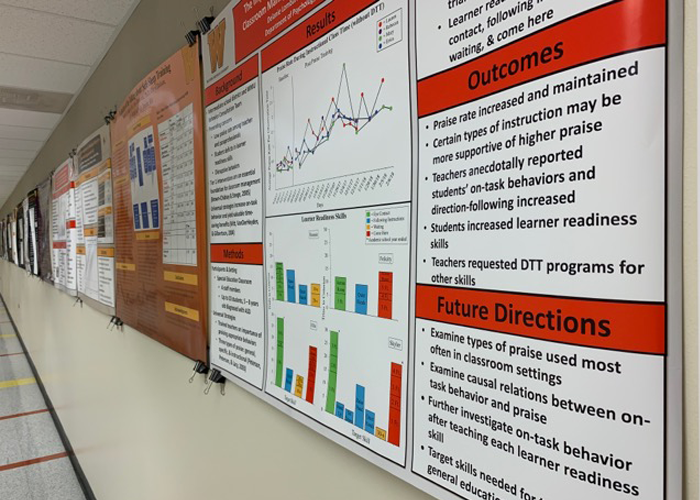
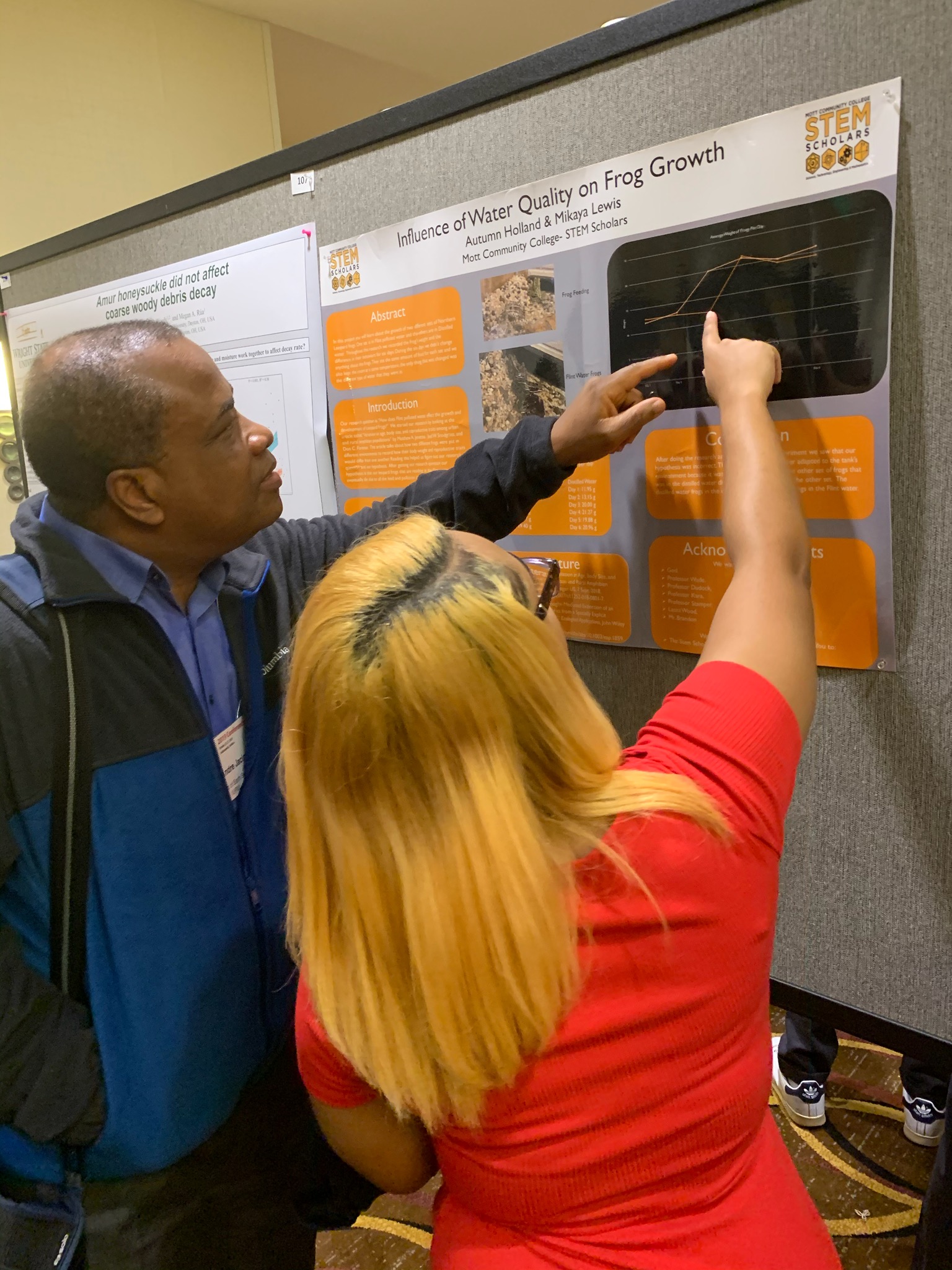
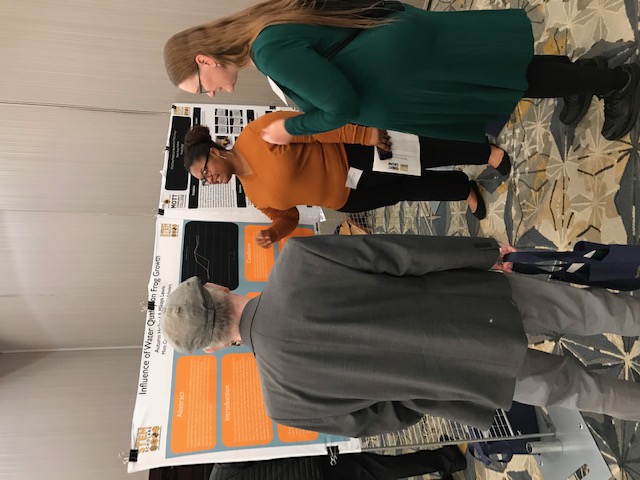
Mott Community College is committed to providing our STEM Scholars with the opportunity to participate in undergraduate research.
This course is an introduction to research methods used by professionals in STEM (Science, Technology, Engineering, and Mathematics) careers.
Students will:
This course offers a powerful learning opportunity that will enable Mott Community College students to transfer to a four-year university science program having already been introduced to beginning research methods.
Course Benefits:
The Louis Stokes Alliance for Minority Participation (LSAMP) is an NSF grant-funded program aimed at increasing the quality and quantity of students successfully completing science, technology, engineering, and mathematics (STEM) baccalaureate degree programs, particularly those from underrepresented minority populations.
As a STEM Scholar at MCC, you will receive extensive support services and an opportunity to participate in paid undergraduate research through the LSAMP Grant.
The S-STEM Scholarship at Mott Community College (MCC) is a grant-funded program sponsored by the National Science Foundation. This program supports students pursuing careers in Science, Technology, Engineering, and Mathematics (STEM) who have shown a high level of academic achievement and demonstrated financial need.
S-STEM scholarship recipients at MCC will receive funding for up to a two-year period covering tuition and required course materials as long as they meet program requirements and have demonstrated full Pell eligibility established by completing a FAFSA (Free Application for Federal Student Aid)
STEM Scholars will also have the chance to explore various STEM career options, interact with experienced professionals in STEM fields, travel to professional STEM-related research conferences and participate in a paid undergraduate research opportunity or internship with faculty mentors. Additional benefits include academic advising and mentoring, peer and professional tutoring, participation in the MCC Summer Bridge Pre-College Program, university visits and transfer preparation.
Apply to the STEM Scholars program at Mott Community College for your chance at an S-STEM scholarship and/or LSAMP Program award and join our community of STEM Scholars!
The National Science Foundation categorizes the following as STEM (science, technology, engineering, and mathematics) fields:
Agricultural Sciences, Animal Sciences, Food Science and Technology, Plant Sciences, Soil Sciences, Veterinary Sciences, Physical Sciences, Astronomy and Astrophysics, Atmospheric Sciences and Meteorology, Chemistry, Geological and Earth Sciences/Geosciences, Physics, Materials Sciences Natural Resources Conservation and Research, Environmental/Natural Resources Management and Policy, Fishing and Fisheries Sciences and Management, Forestry, Wildlife and Wildlands Science and Management, Biology; Biochemistry, Biophysics and Molecular Biology; Botany/Plant Biology; Cell/Cellular Biology and Anatomical Sciences; Microbiological Sciences and Immunology; Zoology/Animal Biology; Genetics; Physiology, Pathology; Biomathematics, Bioinformatics, and Computational Biology; Biotechnology; Ecology, Evolution, Systematics, and Population Biology; Neurobiology and Neurosciences, Physical Sciences, Astronomy and Astrophysics, Atmospheric Sciences and Meteorology, Chemistry, Geological and Earth Sciences/Geosciences, Physics, Materials Sciences
Computer and Information Sciences, Computer Programming, Information Science/Studies, Computer Science, Computer Software and Media Applications
Engineering; Aerospace, Aeronautical, and Astronautical/Space Engineering; Agricultural Engineering; Architectural Engineering; Ceramic Sciences and Engineering; Chemical Engineering; Civil Engineering; Computer Engineering; Electrical, Electronics, and Communications Engineering; Engineering Mechanics; Engineering Physics; Engineering Science; Environmental/Environmental Health Engineering; Materials Engineering; Mechanical Engineering; Metallurgical Engineering; Mining and Mineral Engineering; Naval Architecture and Marine Engineering; Nuclear Engineering; Ocean Engineering; Petroleum Engineering; Systems Engineering; Textile Sciences and Engineering; Polymer/Plastics Engineering; Construction Engineering; Industrial Engineering; Manufacturing Engineering; Operations Research; Surveying Engineering; Geological/Geophysical Engineering; Paper Science and Engineering; Electromechanical Engineering; Mechatronics, Robotics, and Automation Engineering; Biochemical Engineering; Engineering Chemistry; Biological/Biosystems Engineering; Nanotechnology, Architecture, Environmental Design, Architectural Sciences and Technology
Mathematics, Applied Mathematics, Statistics
MCC has partnered with four Michigan universities (Michigan State University, University of Michigan-Ann Arbor, Wayne State University and Western Michigan University) and Washtenaw Community College in a National Science Foundation grant (NSF): The Michigan-Louis Stokes Alliance for Minority Participation award number 2019942. Any opinions, findings, and conclusions or recommendations expressed in this material are those of the authors and do not necessarily reflect the views of the National Science Foundation.

